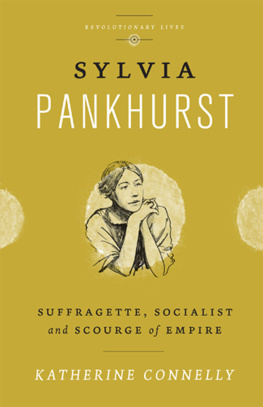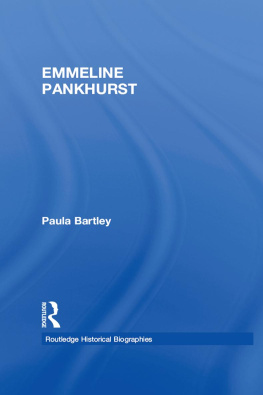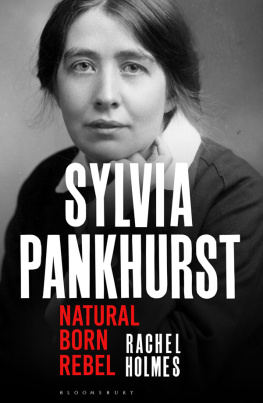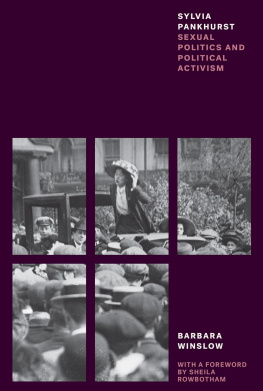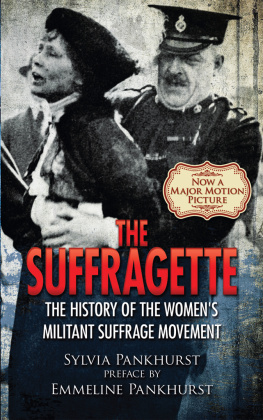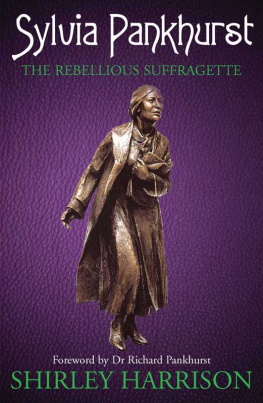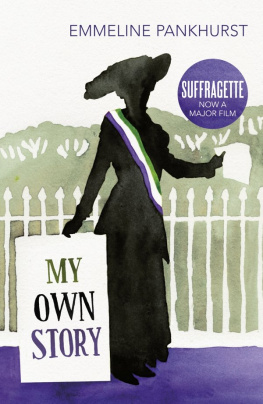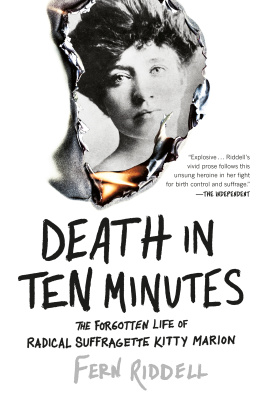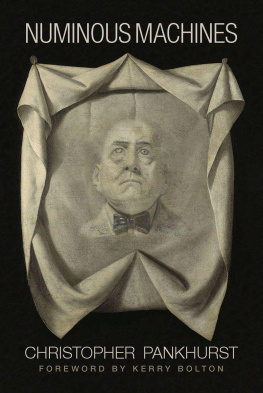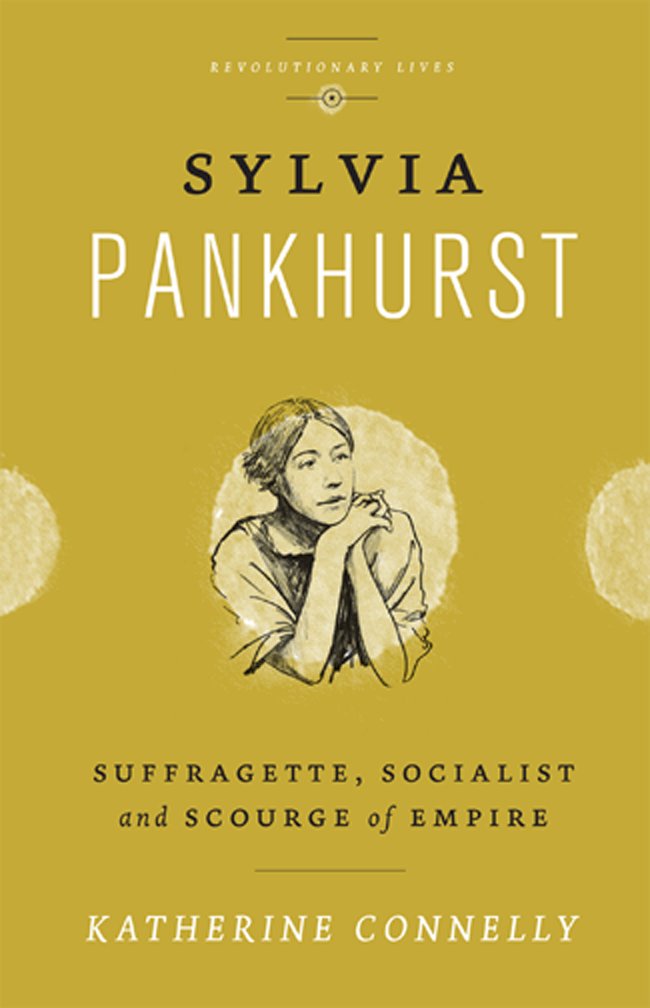Sylvia Pankhurst
Revolutionary Lives
Series Editors: Brian Doherty, Keele University; Sarah Irving, University of Edinburgh; Professor Paul Le Blanc, La Roche College, Pittsburgh
Revolutionary Lives is a series of short, critical biographies of radical figures from throughout history. The books are sympathetic but not sycophantic, and the intention is to present a balanced and, where necessary, critical evaluation of the individuals place in their political field, putting their actions and achievements in context and exploring issues raised by their lives, such as the use or rejection of violence, nationalism, or gender in political activism. While individuals are the subject of the books, their personal lives are dealt with lightly except insofar as they mesh with political concerns. The focus is on the contribution these revolutionaries made to history, an examination of how far they achieved their aims in improving the lives of the oppressed and exploited, and how they can continue to be an inspiration for many today.
Also available:
Salvador Allende:
Revolutionary Democrat
Victor Figueroa Clark
Leila Khaled:
Icon of Palestinian Liberation
Sarah Irving
Jean Paul Marat:
Tribune of the French Revolution
Clifford D. Conner
Gerrard Winstanley:
The Diggers Life and Legacy
John Gurney
www.revolutionarylives.co.uk
Sylvia Pankhurst
Suffragette, Socialist
and Scourge of Empire
Katherine Connelly

First published 2013 by Pluto Press
345 Archway Road, London N6 5AA
www.plutobooks.com
Distributed in the United States of America exclusively by Palgrave Macmillan, a division of St. Martins Press LLC, 175 Fifth Avenue, New York, NY 10010
Copyright Katherine Connelly 2013
The right of Katherine Connelly to be identified as the author of this work has been asserted by her in accordance with the Copyright, Designs and Patents Act 1988.
Every effort has been made to trace copyright holders and to obtain their permission for the use of the photographs in this book. The publisher apologises for any errors or omissions in this respect and would be grateful if notified of any corrections that should be incorporated in future reprints or editions
British Library Cataloguing in Publication Data
A catalogue record for this book is available from the British Library
ISBN 978 0 7453 3323 6 Hardback
ISBN 978 0 7453 3322 9 Paperback
ISBN 978 1 8496 4942 1 PDF eBook
ISBN 978 1 8496 4944 5 Kindle eBook
ISBN 978 1 8496 4943 8 EPUB eBook
Library of Congress Cataloging in Publication Data applied for
The following photographs are from the Estelle Sylvia Pankhurst collection held at the International Institute of Social History in Amsterdam: page 13 (in her studio), page 23 (WSPUs membership card), page 53 (recovering from hunger strike), page 74 (Cost Price Restaurant) and page 120 (speaking at an anti-Nazi demo). The photograph on page 107 (in Moscow, at the Third International) is from the William Gallacher collection, also held at the International Institute of Social History in Amsterdam.
This book is printed on paper suitable for recycling and made from fully managed and sustained forest sources. Logging, pulping and manufacturing processes are expected to conform to the environmental standards of the country of origin.
10 9 8 7 6 5 4 3 2 1
Typeset from disk by Stanford DTP Services, Northampton, England Simultaneously printed digitally by CPI Antony Rowe, Chippenham, UK and Edwards Bros in the United States of America
Contents
Acknowledgements
First and foremost I owe a profound debt of gratitude to Sylvias son, Dr Richard Pankhurst, and to Sylvias daughter-in-law, Rita Pankhurst. Richard Pankhurst read the manuscript and provided invaluable comments and advice. Throughout the writing of this book they were both always supportive and very generously shared their memories of Sylvia with me. It was a privilege to get to know them and I feel that the interview they gave me greatly enriches this book.
I would also like to thank my publishers Pluto Press for all their help, in particular David Castle who guided me through the entire process and was always supportive and understanding.
I was helped in the commissioning stage by Neil Faulkner, Megan Dobney, Mel Whitter and Des Freedman. I am especially grateful to Tracy Walsh at Ruskin College who gave me one of my first opportunities to present the early ideas for this book and whose kindness and enthusiasm were more than I could ever have hoped or asked for. I would like to thank the students at Ruskin for their thought-provoking contributions which helped me to develop my thoughts. Kate Clayton-Hathway invited me to present my ideas to the Oxford International Womens Festival and I am grateful to her and all those who contributed there. You helped me to pull my last thoughts together.
Explo Nani-Kofi, Leo Zeilig, Marika Sherwood, Hakim Adi, Leslie James and Barbara De Vivo kindly suggested reading material for researching the last chapters of the book. Nigel Shephard generously gave up his time to discuss with me the photographs available in the archives. Jane Mackelworths research on the suffragettes has opened my eyes to new perspectives and her support has meant a lot to me.
There are many people I would like to thank who are too numerous to mention here and many of whose names I do not know. Firstly, all the people in the social movements that it has been my privilege to campaign alongside in the last ten years. You have educated and inspired me. I would like to thank all the staff at the Tower Hamlets Local History Library, the Working Class Movement Library, the Labour History Archive and Study Centre (Peoples History Museum/University of Central Lancashire), the Bishopsgate Institutes Library and Archive Collections, the British Library, the Museum of London, the School of Oriental and African Studies Library, the Marx Memorial Library and especially at the Womens Library where I conducted so much of the research for this book.
I am very grateful to Kings Lynn Trades Council for inviting me to speak at their marvellous Women for Change series and for all the insightful and helpful comments offered by those who attended. In particular I am grateful to their secretary, Jo Rust, who has been very supportive of this book and its subject matter; to William Alderson, who read the manuscript and offered thoughts; and to Jacqueline Mulhallen who read the manuscript, provided me with comments and suggestions, and was extremely generous in her constant support and in sharing her research and ideas on Sylvia in general and her art in particular I am very much in her debt. Lindsey German, Elaine Graham-Leigh, Lucy Maxwell-Scott, Richard Allday and Ros Connelly also all read the manuscript and provided detailed and extremely useful comments. I am particularly grateful to my mum, Ros Connelly, who also compiled the index and was always on the other end of the phone and always full of encouragement.
This leads me to thanks of a different kind. I am grateful to my friends, and those members of my and Richards family who were so understanding of my unreliability and sudden absences.
I do not know how to begin to thank my parents Paul and Ros Connelly and my sister Ruth Keogh Connelly for everything they have given me, but I do know that their love, support and understanding while I was writing helped me every single day.

